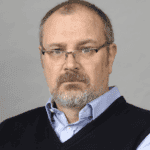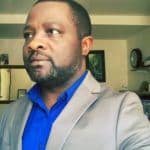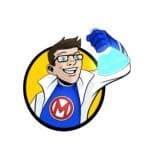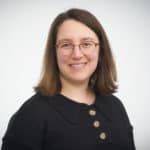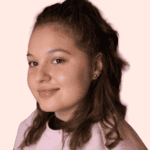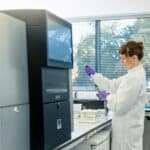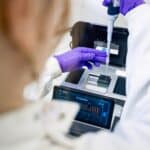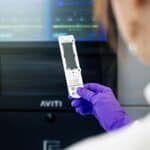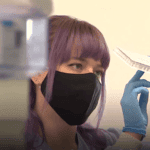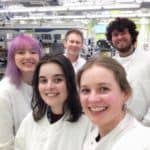Profile
Laura Durrant
-
About Me:
I live with my partner in Suffolk. I’m a DNA scientist 👩🔬🧬 I also enjoy travelling, running, painting and cuddling my cat 😸
-
Read more
I do a lot of jogging to train for running events. I’ve ran a few half marathons and would love to run the London marathon one day! Swimming is my favourite sport though. I used to swim competitively and have a collection of medals and trophies at home.
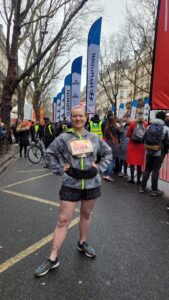
Me at the start line of the Paris Half Marathon 2024
I love travelling and seeing the world! A lot of the time I’m exploring new places by bike or on-foot. Painting is my stress reliever and collecting vinyl records means I have an extensive collection of music to listen to while I do it.
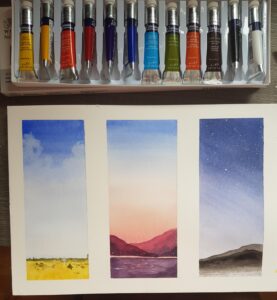
Some of my watercolour paintings
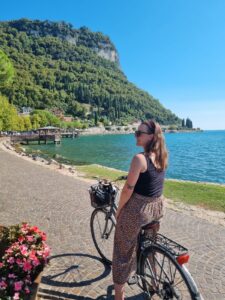
Cycling around Lake Garda in Italy
I’ve been a science nerd for as long as I can remember! Growing up I liked going to museums and read books about anything from space to human anatomy. I also grew up watching Sir David Attenborough and Steve Irwin (The Crocodile Hunter) who are my biggest inspirations!
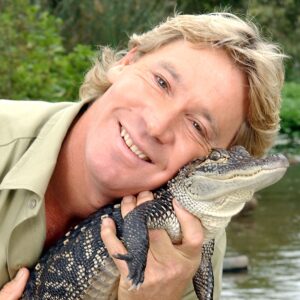
Steve Irwin (The Crocodile Hunter, Crikey!)
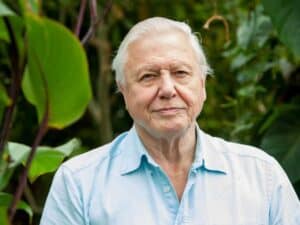
Sir David Attenborough
-
My pronouns are:
She/her
-
My Work:
I work in DNA Sequencing 🧬 Unravelling the genetic code helps us to understand the living world around us. At our institute, we’re interested in the link between DNA and human health!
-
Read more
I’m a Genomics Specialist at the Babraham Institute in Cambridge. Basically, I’m an expert in DNA Sequencing! We have many research groups who are interested in how DNA works and how it effects human health and I help them to do that.
DNA is known as the ‘molecule of life’ as it holds a biological code that tells living organisms how to grow and function. This code is carried in loooooong DNA strands containing millions of combinations of just four letters: A, T, G and C. These long DNA strands are coiled up and packaged into chromosomes which are kept safe inside cells. It is the order of these A’s, T’s, G’s and C’s in DNA that creates life!

As an expert in DNA sequencing, it’s my job to work out the order of these letters in any given strand of DNA. This can be a very short bit of DNA (known as a ‘gene’) or even whole chromosomes! This makes my job really interesting as I get to be involved in lots of different projects. So not one day is the same!
-
My Typical Day:
I wake up at 6:30am, have breakfast and feed our cat Lila 😸 I get to work for 8am where I plan my day over a coffee before starting my lab work. I have lunch with my collaegues at 12pm and look at my results in the afternoon. I go home at about 4pm.
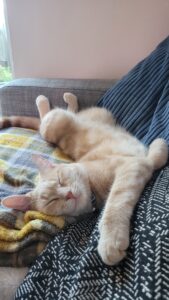
Our cat, Lila 🙂
-
Read more
The first thing I do in the morning is feed my cat, Lila or she will meow the house down! I then make myself some breakfast and eat with Lila. I then get ready, make lunch and fill up my coffee flask before leaving the house at about 7:30am.

Enjoying my morning coffee from my Babraham Institute branded mug
When I get to work at 9am, I check my emails and assess the lab work I have scheduled for the day. This will depend on the project(s) I’m working on. Something I do often in the lab is something called ‘library preparation’ which is a method for making freshly extracted DNA compatible with our sequencing instruments. There are lots of library preparation methods available depending on the type of DNA I’m working with and what sort of sequencing data the researcher needs for their project. Some take less time in the lab than others, so I spend some time planning out my day while sipping my home-brew coffee.
I then get to work in the lab. If I’m able to compete the library preparation before the end of the day, I will run some tests to see what they look like and decide if they are good to load onto the sequencer. If they are, I will load them at the end of the day and leave the sequencer to run overnight. If they don’t, I will do some troubleshooting first to figure out how I can improve them before sequencing them. I’ll then use the next morning to analyse the sequencing data before moving on to the next project.
-
What I'd do with the prize money:
If possible, I would love to donate the prize money to our institute’s own Public Engagement Team. They’re very dedicated to STEM public engagement and they are fantastic at what they do! Or I would donate to the ENTHUSE Charitable Trust who are advancing the education of the public by fostering and promoting the continuing professional development of STEM educators.
-
Education:
I grew up in Stevenage, Hertfordshire. My primary education was at Ashtree Primary School and my secondary education was at Barnwell School.
-
Qualifications:
12 GCSEs, 3 A-levels in triple science, a General Foundation Degree, a BSc in Biochemistry with Human Biology and a MSc in Molecular Medicine.
-
Work History:
I worked in retail as a teenager and during university, I worked a seasonal catering supervisor jobs where I helped run a cafe and events like weddings, proms and concerts.
After finishing univeristy, I decided I didn’t want to go straight into a PhD and started applying for entry-level jobs to gain some hands-on experience. I applied for an entry-level job at the Wellcome Sanger Institute in Cambridge, which was my first role working in DNA sequencing. It wasn’t part of my plan to start a career in DNA sequencing, but it turned out I really enjoyed it!
During this time, I was involved in a national project to surveillance the COVID-19 virus during the height of the pandemic. I helped to sequence viral DNA taken from positive COVID tests to understand how the virus was evolving and inform the UK government of new strains. Being involved in this important work helped me to get a promotion.
Here’s a link to a clip from BBC News. I’m the girl with the purple hair!
https://www.bbc.co.uk/news/av/uk-england-cambridgeshire-56491784
-
Current Job:
I’m now a Genomics Specialist at the Babraham Institute in Cambridge, just down the road from the Wellcome Sanger Institute where I used to work. My day-to-day is similar, although I am now part of a much smaller team of just two people, which means I’m a lot more involved in making decisions. I also have a lot more opportunities to go to conferences, give presentations and get involved with STEM public engagement. That’s the beauty of working in science – it isn’t just about what we do in the lab but how we extend beyond it and share our passions with others!
-
Employer:
The Babraham Institute, Cambridge.
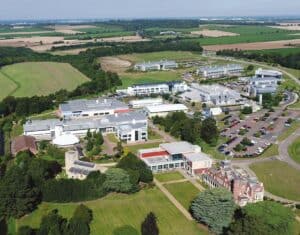
Arial shot of the Babraham Institute, Cambridge
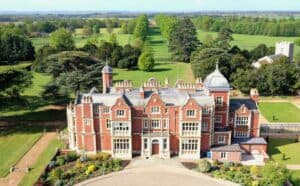
Babraham Hall based at the Babraham Institute
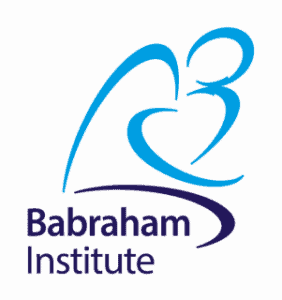
Institute logo
default
-
My Interview
-
How would you describe yourself in 3 words?
Curious, open-minded and friendly
What did you want to be after you left school?
A molecular biologist
Were you ever in trouble at school?
No, I was a bit of a teachers pet
If you weren't doing this job, what would you choose instead?
A music journalist
Who is your favourite singer or band?
The Beatles
What's your favourite food?
Sushi 🍣
If you had 3 wishes for yourself what would they be? - be honest!
(1) Eternal happiness (2) to explore every country and (3) to not be intolerant to dairy!
Tell us a joke.
Why didn't the skeleton go to the party? Because it had no body to go with!
-

